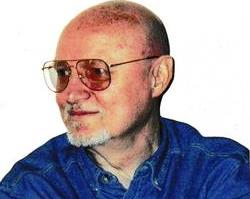
Bernd Magnus
Professor Emeritus of Philosophy
Bernd Magnus came to UCR by an unusual route. His formal academic stops included an undergraduate degree from the City University of New York, followed by a Ph.D. from Columbia in 1967. After teaching at Fairleigh Dickinson University during graduate school to support a young family, and three years at the University of Akron he joined the UCR Philosophy faculty in 1969, where he taught for 36 years. This academic sketch, however, does not do justice to the early odyssey of his life.
Born in 1937 in Danzig, at the time a “free city” belonging to no nation state, to a religiously observant Jewish father and a mother who converted to Judaism, he and his family had to avoid pursuit by the Nazis until 1943. His mother, his sister and he were captured after his half-brother, previously forced by the Nazis to serve in the German army, was killed on the Russian Front. They were quickly sent to Bergen Belsen concentration camp. There they remained, even being reported as killed in the camp, until sometime in 1943-1944 when they escaped, surviving the rest of the Holocaust on the run by cunning, fortuity, and a German friend who protected them.
Through good luck, happenstance, and the kindness of others they were reunited with their father in 1947, who in 1939 had escaped from Germany to Holland (but his family was unable to follow the same route out). He then went the Dominican Republic before finally entering the U.S. in 1946. Once the reunited family settled in New York City Bernd was able to pursue a more normal life and education, which eventually brought him to UCR.
At UCR he immediately made an impact on the Philosophy Department and ultimately on the campus. The small Philosophy Department of only five in 1970, with guidance from and the driving force of Bernd, who served as Chair from 1972 to 1976 developed a Ph.D. program, which received approval from the UC President’s office in late 1972. In 1971 the department had added two faculty for a total of seven, the minimum for a Ph.D. program. Since the faculty remained a small cohort, a critical component of the “tutorial” program was a Distinguished Visitors’ Series to bring six distinguished faculty per year to the department, each for a weeklong visit with lectures, small discussions, and interactions with graduate students and faculty. While this was quite successful for the department and graduate education, calling attention to an up and coming department, after a period of time it became sufficiently burdensome that an increase in departmental size seemed called for. During some of this time Bernd again served as department chair (1979-1983) and continued seeking to develop the program in conjunction with campus growth or stasis during oscillating periods of the campus size.
Professor Magnus, not only was active in the department, but perhaps inspired by the anti-war movement in which he had some involvement, also recognized the importance of academic senate participation and actions to which he stayed attuned in order to assist the department and its faculty.
While he was appointed as an Assistant Professor in 1969, he quickly became a full professor in 1974, served for a time as Associate Dean of the College of Humanities and Social Sciences, and ultimately held the title of Professor of Humanities, at the time the only faculty member to hold that position.
As an internationally recognized expert on 19th/20th Century European Philosophy (“Continental Philosophy”) and, more specifically, a leading scholar of Friedrich Nietzsche in the Anglophone world, in 1984 he received a Guggenheim Fellowship in recognition of his accomplishments. Among his contributions, in addition to about forty articles, were three books—Heidegger’s Metahistory of Philosophy; Nietzsche’s Existential Imperative; and Nietzsche’s Case: Philosophy as/and Literature (with Stanley Stewart and Jean-Pierre Mileur)—along with five edited books, including the Cambridge Companion to Nietzsche.
In addition, he wrote on various postmodern thinkers, was co-editor of the pioneering Complete Works of Nietzsche, and was a founder of the North American Nietzsche Society. His research and leadership helped to turn the Philosophy Department into an internationally known center for European Philosophy. After his retirement and in his honor, the department created the annual Magnus Lecture, which once a year brings an internationally known speaker on Nietzsche or related figures to campus.
Professor Magnus was also inspired by the creation of the system wide UC Humanities Research Institute, designed to bring together UC faculty from across the system as well as outside faculty for interdisciplinary research, writing, and conferences. He established the UCR humanities center, known as the Center for Ideas and Society, seeking to mimic aspects of the system wide center. He created a place for interdisciplinary humanities research, quarter long seminars, and a location for invited nationally known experts to spend time in residence. For major events he was famous for providing a nice repast, often including shrimp, to close out the year or major events.
Bernd was very enthusiastic about sports. As a committed tennis, softball, and basketball player, he often invited faculty to participate in adventitious or intramural sports with him. He owned season tickets for Anaheim Angels games for decades. These too he shared with colleagues.
Bernd Magnus, Emeritus Professor of Philosophy, passed away on November 3, 2014, at the age of 76. A memorial service was held for him on November 10, 2014, at Temple Beth El, Riverside. He is survived by his wife, Lore Woodcock Magnus, his children, David Magnus and Victoria Varnals, his grandsons, Tyler and Ryan Varnals, and his sister, Miriam Eis. The annual Magnus Lecture honors his many contributions to the department and campus.
This memorial was prepared by Carl F. Cranor, Distinguished Professor of Philosophy. Edited by Carole-Anne Tyler.
